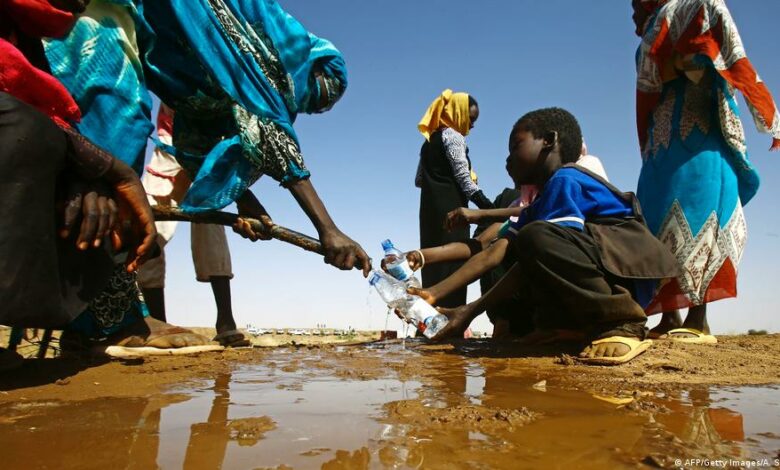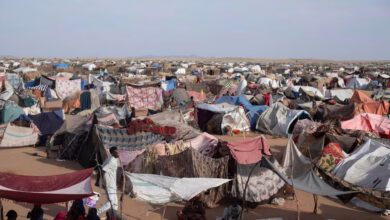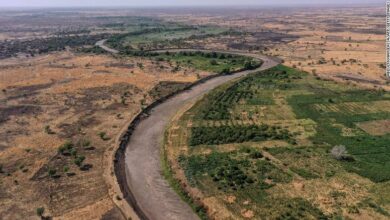
Several officials have warned that climate change may lead to the displacement of millions of people in the Middle East, with the risk of the expansion of cities harming the environment, and the potential for conflict over resources.
In an interview with Agence France-Presse, the head of the Egyptian Farmers Syndicate, Hussein Abu Saddam, commented on these changes, saying: “Young people migrate from rural areas either abroad, or to large cities to work,” adding that “climatic factors are behind this migration.”
Abu Saddam explained that although “Egypt suffers mainly from its large population and being one of the driest countries in the world, new phenomena related to climate change, such as the emergence of new parasites, make agriculture less profitable than before.”
The United Nations High Commissioner for Refugees stated that 90 percent of refugees in the world come from regions that are highly vulnerable to the effects of climate change.
Deputy Director of the International Organization for Migration, Amy Pope, told AFP if the population cannot provide their food and cultivate the land, they will have mo other opinion but displacement.
Pope said that repeated natural disasters in 2021 pushed three million people to almost leave their homes in Africa and the Middle East, expecting the situation to deteriorate.
The international community pledged at the Copenhagen and Paris climate conferences to help developing countries face the repercussions of climate change by contributing to providing these countries with a different way of agriculture and better water management methods.
Agriculture at risk
Climate experts predict that by 2060, Egypt will lose half of the productivity of the agricultural sector.
Migrants are also attracted to the lifestyle in the city and the services available in it, Florian Bonnevoy, a researcher at the French Center for Economic, Legal and Social Studies in Cairo, told AFP.
The World Bank believes that unless action is taken to limit climate change, there will be 216 million climate-related migrants by 2050, as entire families will be forced to migrate within their countries, and the displacement will include 19.3 million in the five North African countries.
The Euro-Mediterranean Foundation of Support To Human Rights Defenders (EMHRF) stated that the North Africa region is more vulnerable than other regions, because its beaches are densely populated and threatened by rising sea levels, as 7 percent of its population lives less than five meters above sea level.
Automatically, citizens head to major cities such as Cairo, Algiers, Tunis, Tripoli, Rabat, Casablanca and Tangiers.
While the World Bank warns that these “climate migration hotspots” are already vulnerable to rising sea levels.
For example, in Alexandria, on the Egyptian Mediterranean coast, two million people, i.e about a third of the city’s population, will have to relocate.
The city will lose 214,000 jobs if the sea level rises 50 centimeters.
Egyptian economist Assem Abu Hatab warned that these migrations increase pressures on resources, which may lead to violent conflicts, as he put it, in a region where 22 percent of the population depends on agriculture.
AFP reported that conflicts between tribes over water, pasture and land in Sudan, have caused hundreds of deaths since the beginning of this year in several states.
Rising threat of droughts
UNICEF said that 11 of the 17 most water-poor countries in the world are located in the Middle East and North Africa region.
The World Bank stated that if no action is taken by 2050 in Iraq, and in the event of a temperature increase by a degree Celsius and a ten percent decrease in rainfall, this country of 42 million people will lose 20 percent of its fresh water.
Meanwhile, Jordan, one of the driest countries in the world, was forced to double its water imports from Israel this year, while the Gaza Strip, which is under an Israeli blockade, has suffered from a chronic water shortage for years.




